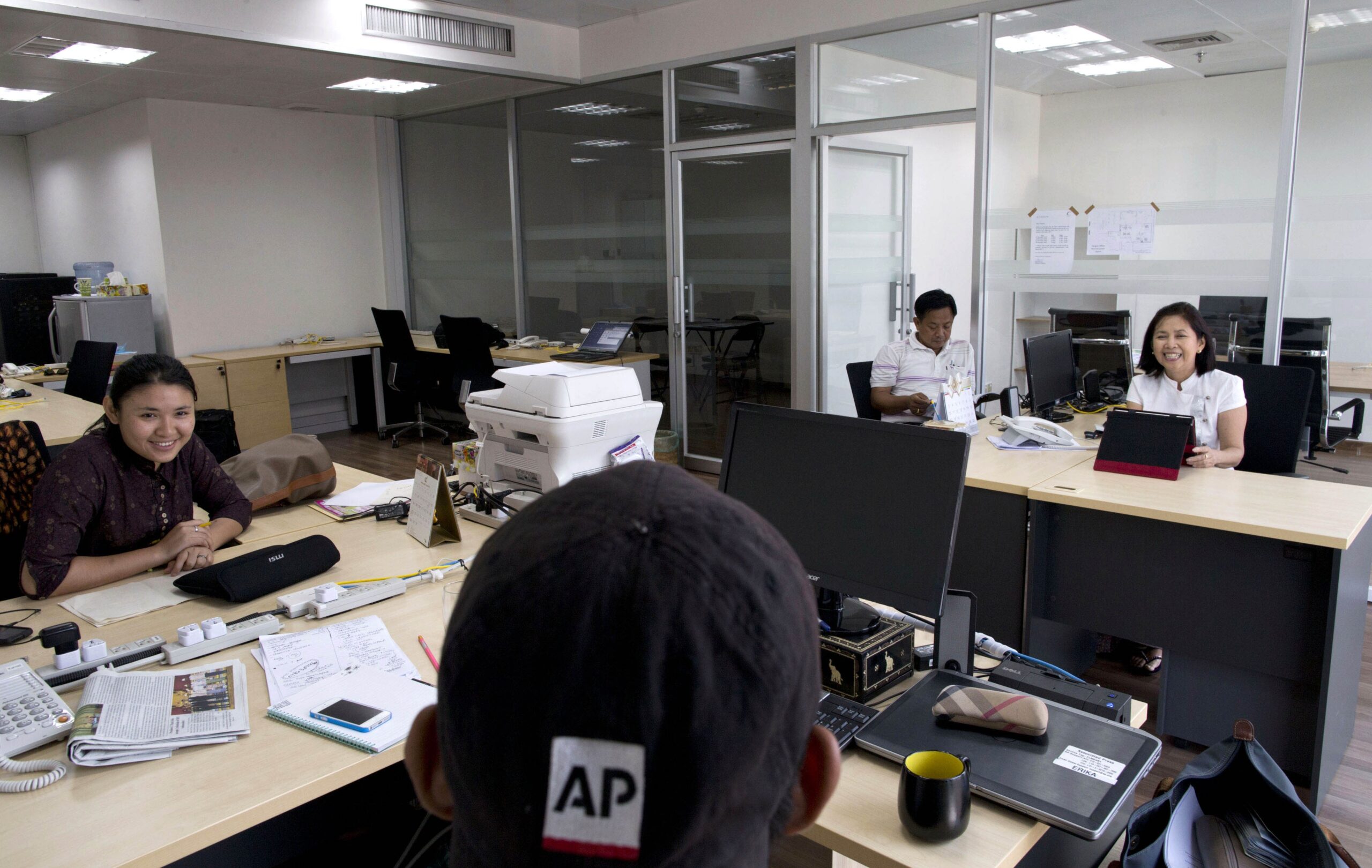YANGON, Myanmar (AP) -- The Associated Press has become the first international news agency to open a bureau in Myanmar since a reformist government took power two years ago and began relaxing restrictions on the media for the first time in decades.

The opening paves the way for AP to expand its coverage of the unfolding transition in Myanmar, which is still emerging from nearly half a century of military rule, for its members and customers around the world.
Six multi-format journalists will staff the new AP bureau full time. Among them is award-winning correspondent Aye Aye Win, who has reported from her native country for the AP since 1989 and was honored for courage in 2008 by the International Women’s Media Foundation. She succeeded another AP veteran in Yangon — her father, Sein Win, who covered the nation also known as Burma for AP for 20 years and was imprisoned several times, including during the failed pro-democracy uprising in 1988.
“AP has a proud history of reportage from Myanmar, and the new multimedia bureau marks the beginning of an even more robust commitment,” said AP President and CEO Gary Pruitt. “We hope to build on our efforts and cover the important changes there for many years to come.”
Senior Vice President and Executive Editor Kathleen Carroll said: “We take great pride in our independent and impartial reporting, and coverage of Myanmar has been a priority for many years. A full-time, multimedia bureau staffed by talented local and international journalists will enable AP to provide even more coverage of the historic changes under way in Myanmar.”
The Information Ministry informed the AP on Saturday it had granted the news agency permission to open a full-fledged office in the main city, Yangon. Japanese broadcaster NHK was also granted permission.
Although the AP has deployed visiting foreign staff regularly to Myanmar since the nation began opening up two years ago, it had previously been prohibited from basing international journalists permanently in the country. Today, there are several dozen journalists working in Myanmar for various international news outlets. Under the previous military regime, China’s Xinhua News Agency and Guangming Daily were the only foreign news outlets allowed to have their nationals as resident correspondents.
The reform process under President Thein Sein, who took office two years ago this month, has included the abolition of direct censorship of local media. On Monday, independent daily newspapers published for the first time since 1964.
The opening of AP’s bureau in Myanmar follows by a little more than a year the opening of a bureau providing text stories and photos from Pyongyang, North Korea, which made AP the first Western news organization to operate fully in all media time in the mostly shrouded state. AP previously had a video news office in the country since 2006.
Founded in 1846 and headquartered in New York City, the AP provides news in print, photos, video, mobile and online. It is an independent, not-for-profit news cooperative owned by member newspapers and broadcasters in the United States and operating from 280 locations in 110 countries around the world.




